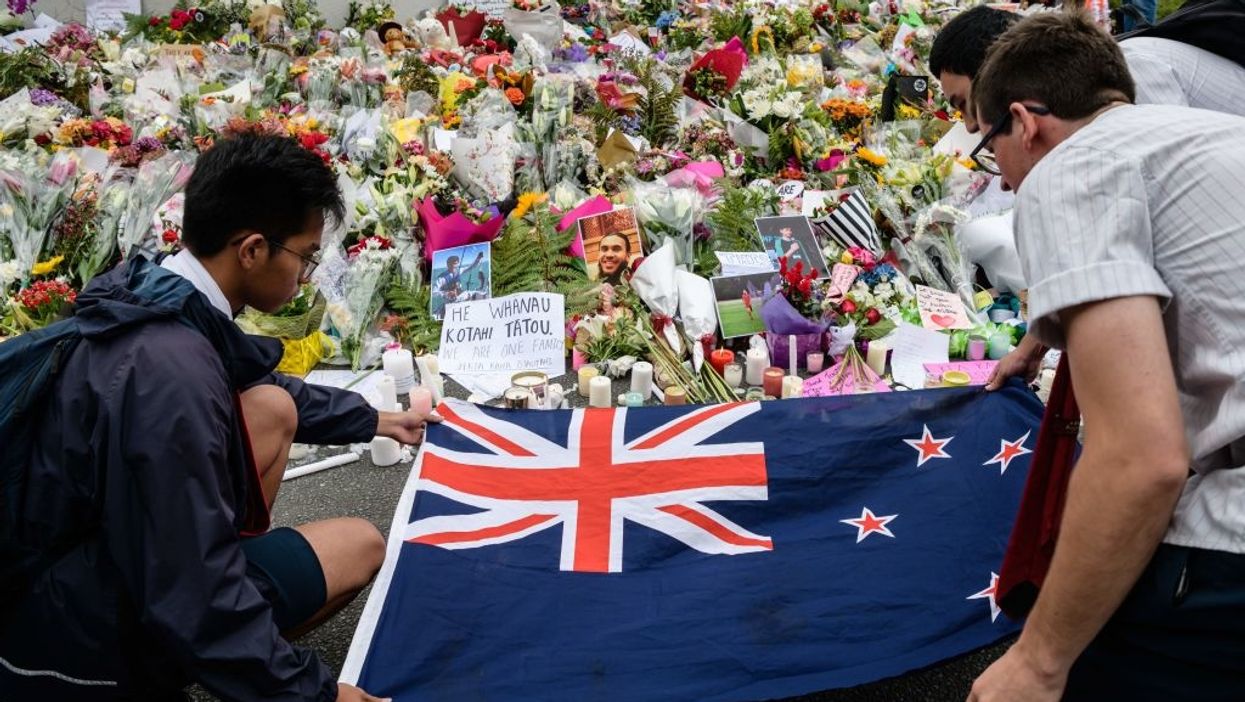
ANTHONY WALLACE/AFP/Getty Images

'There is an important distinction to be made ...'
Like the United States, New Zealand's Bill of Rights guarantees a constitutionally protected right to freedom of expression, although with stricter parameters than in the U.S., which protects freedom of expression with minimal regulation.
That's why many expressed shock over the weekend when the New Zealand government essentially criminalized the dissemination of a manifesto written by the man who opened fire in two mosques in Christchurch, a port city in western New Zealand, on March 15.
New Zealand's Office of Film and Literature Classification on Saturday announced it had classified the killer's manifesto as "objectionable," potentially subjecting anyone who shares or possesses the document to criminal prosecution.
"There is an important distinction to be made between 'hate speech', which may be rejected by many right-thinking people but which is legal to express, and this type of publication, which is deliberately constructed to inspire further murder and terrorism," New Zealand's Censor Chief David Shanks said in a statement. "It crosses the line."
In New Zealand, "objectionable" classification is considered "a justifiable limit on freedom of expression."
Shanks said that any New Zealander in possession of the manifesto should immediately destroy their copies.
"New Zealanders can all play a part in denying those who exhort hatred, killing and terror. If you have a copy of this publication, delete or destroy it. If you see it, report it. Do not support the murderous objectives of its author by republishing or distributing it," he said.
Only New Zealanders with "legitimate" reasons will be legally eligible to possess the document going forward. Shanks cited professions, "including reporters, researchers and academics," who might use the manifesto for "education, analysis and in-depth reporting."
More from the New York Times:
The ruling is part of a wider strategy by Prime Minister Jacinda Ardern to undermine the attempts by the suspect, Brenton Harrison Tarrant, to gain global notoriety. She has pledged never to utter his name publicly, and to press platforms like Facebook to deny access worldwide to the manifesto, which was published just before the slaughter of 50 people in two mosques, as well as the video the gunman apparently livestreamed of part of the attacks.
New Zealand authorities are cracking down on people who have shared on social media video the killer livestreamed to Facebook during the massacre, "under a law that forbids dissemination or possession of material depicting extreme violence and terrorism," the Times reported.
At least one of those people charged was an 18-year-old who was denied bail from jail. The teenager was charged, not only with sharing the Facebook video, but for posting online chat messages "inciting extreme violence," according to the Australian Associated Press.